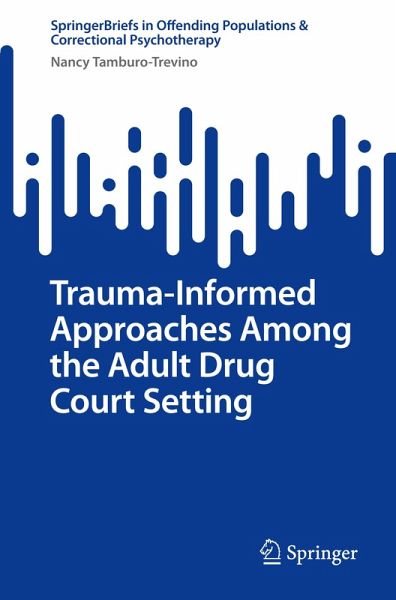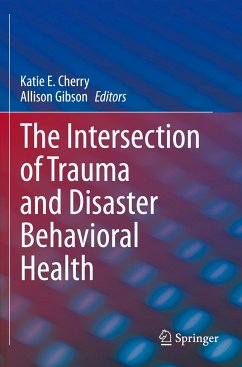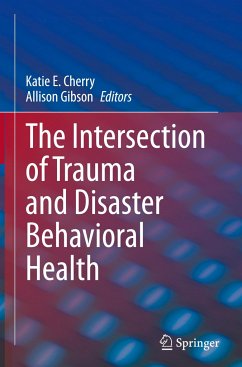
Trauma-Informed Approaches Among the Adult Drug Court Setting

PAYBACK Punkte
17 °P sammeln!
This brief explores trauma-informed practices in adult drug courts, highlighting the roles of judges, attorneys, court managers, case managers, law enforcement, treatment providers, and alumni. It emphasizes the need for all staff to operate from a trauma-informed care (TIC) model, prioritizing safety, choice, collaboration, trustworthiness, empowerment, and cultural considerations.Drawing on the restorative justice movement, this volume addresses the link between trauma and criminal justice involvement, noting how incarceration worsens retraumatization and racial inequities. Implementing TIC ...
This brief explores trauma-informed practices in adult drug courts, highlighting the roles of judges, attorneys, court managers, case managers, law enforcement, treatment providers, and alumni. It emphasizes the need for all staff to operate from a trauma-informed care (TIC) model, prioritizing safety, choice, collaboration, trustworthiness, empowerment, and cultural considerations.
Drawing on the restorative justice movement, this volume addresses the link between trauma and criminal justice involvement, noting how incarceration worsens retraumatization and racial inequities. Implementing TIC can transform clients' experiences in the justice system.
This guide includes:
An overview of TIC principles in practice.Worksheets for creating a trauma-informed setting.Examples of TIC application in various roles.
Essential for US drug court professionals, this resource provides practical guidance on trauma-informed care.
Drawing on the restorative justice movement, this volume addresses the link between trauma and criminal justice involvement, noting how incarceration worsens retraumatization and racial inequities. Implementing TIC can transform clients' experiences in the justice system.
This guide includes:
An overview of TIC principles in practice.Worksheets for creating a trauma-informed setting.Examples of TIC application in various roles.
Essential for US drug court professionals, this resource provides practical guidance on trauma-informed care.












